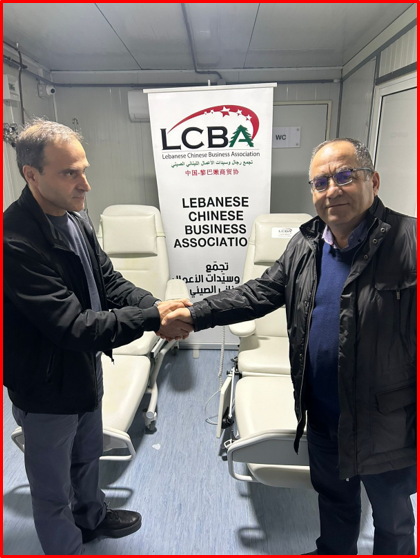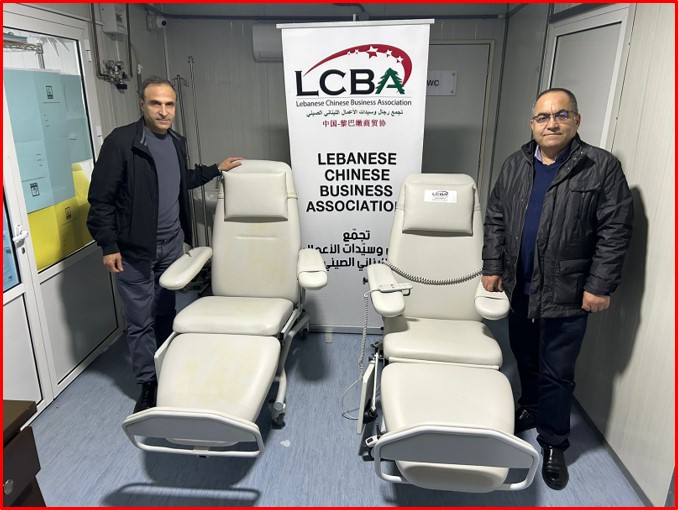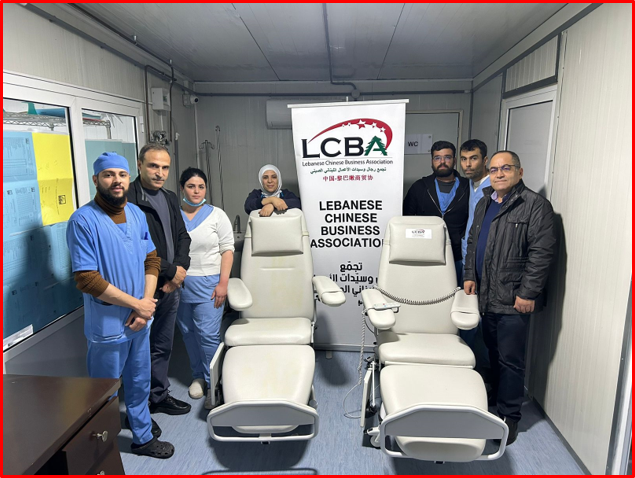Electric beds for dialysis patients Provided by the Chinese Embassy through the Lebanese Chinese Business Association to the Abdallah Al Rassi Governmental Hospital in Halba – Akkar
Electric beds for dialysis patients Provided by the Chinese Embassy through the Lebanese Chinese Business Association to the
Abdallah Al Rassi Governmental Hospital in Halba – Akkar
President of the Lebanese Chinese Business Association, Ali Mahmoud El Abdallah, in cooperation with the Chinese Embassy, provided medical equipment to the Governmental Hospital in Akkar.
On this occasion, El Abdallah said:
“The healthcare sector in Lebanon in general is suffering from the devastating effects of the economic and financial crisis. However, the North and Akkar in particular have been hit the hardest, especially in the healthcare field. They urgently need significant support to allow medical facilities to continue fulfilling their vital social role.”
He added:
“In short, public healthcare in Akkar is facing serious challenges and will not be able to continue serving citizens without comprehensive support on all levels.”

During the ceremony marking the delivery of medical equipment to the Akkar Governmental Hospital, in cooperation with the Chinese Embassy in Lebanon, El Abdallah said:
“We are committed to supporting healthcare institutions. This is not the first time we have paid attention and offered assistance to public hospitals through donations in collaboration with the Chinese Embassy. I would like to extend, from Akkar, our deepest appreciation to the Chinese Embassy, which has never hesitated to support Akkar in various fields.”
El Abdallah continued:
“The kidney disease crisis in Lebanon is worsening, particularly after the failure to supply public hospitals with the necessary medicines and essential dialysis materials, along with the emigration of many doctors following the economic collapse. This has coincided with the rise in dialysis costs beyond the means of most patients about 4,000 of them nationwide in addition to roughly 1,000 patients who have undergone kidney transplants. A large proportion of kidney patients require around three dialysis sessions per week.”
He added:
“Although this crisis is nationwide, Akkar already deprived of adequate healthcare in terms of the number of hospitals, doctors, and medical specialties has been plunged into a dark tunnel since the economic collapse. Akkar is in dire need of all our support.”

For his part, Dr. Mohammad Khodreen, Director of Abdallah Al Rassi Governmental Hospital in Akkar, said:
“The challenges in Akkar are immense. We are doing everything we can to serve citizens in all medical fields, but the challenges are growing. Dialysis treatment is a matter of life and death for kidney patients. It is also important to note that some patients need up to three dialysis sessions weekly, each lasting around four hours meaning that a kidney patient spends an average of 12 hours a week in the dialysis center. This puts enormous pressure on hospitals that are not adequately equipped, as well as on patients who deserve our full care. This is our duty.”



